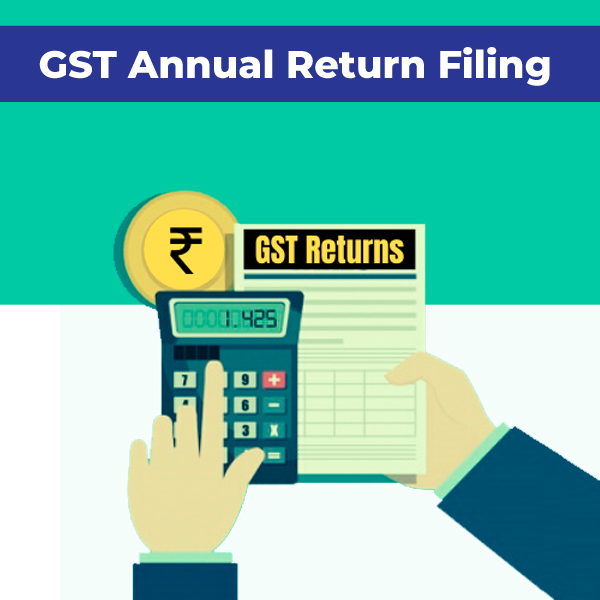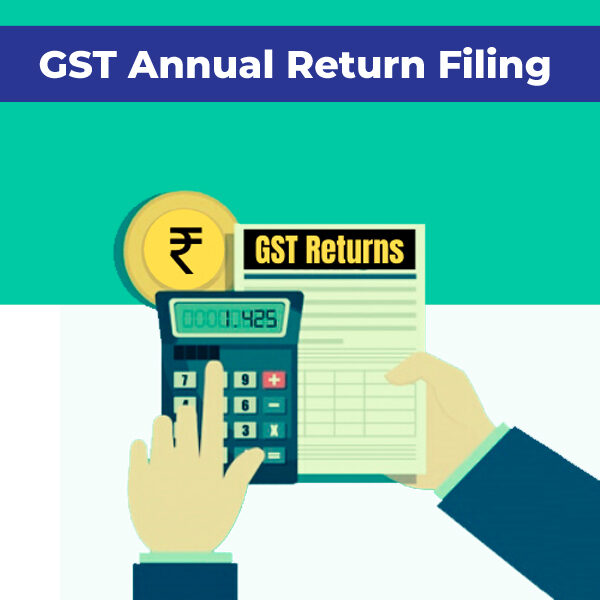How to File GST Annual Return
Implemented in India from 1st July 2017. Over 1.3 crore businesses in India have been registered and issued GST registration under the new GST regime. The entities registered under GST must file annual returns as per the scheduled GST return due date.
GST annual return filing is mandatory for all entities with a turnover of more than two crores required to obtain GST registration, irrespective of the business activity or sales or profitability during the return filing period. Hence, even a dormant business that gets GST registration must file GST returns.
What is GSTR 9: Annual Return Filing?
GSTR 9 is the annual return that is to be to be filed yearly by the taxpayers registered under GST.
GSTR 9 is to be filed yearly by the taxpayers registered under GST. It consists of details regarding the outward and the inward supplies made during the relevant financial year.
Before filing GSTR 9, the taxpayer must file all GSTR-1, GSTR-3B, or GSTR 4 returns. In case of over dues, the GSTR registration holder will not be allowed to file an annual GST annual return.
GSTR 9 consists of details regarding the outward and the inward supplies made or received during the relevant financial year under CGST, SGST, and IGST. It is a consolidation of all the monthly/quarterly returns filed in that year.
Who should file GSTR 9?
All taxpayers/taxable persons registered under GST must file their GSTR 9. However, the following are NOT required to file GSTR 9:
- Taxpayers opting composition scheme (They must file GSTR-9A)
- Casual Taxable Person
- Input service distributors
- Non-resident taxable persons
- Persons paying TDS under section 51 of CGST Act.
GST Annual Return Due Date
The due date for filing Form GSTR-9 (Annual Return) and Form GSTR-9C (Reconciliation Statement) for financial year 2019-2020 has been extended up to 31st March 2021 basing the pandemic situation. The Government has also decided to simplify these forms by making various fields of these forms is optional.
What details are required to be filled in the GSTR-9?
The GSTR-9 is broadly divided into six parts and 19 sections. Each part asks for the details that are readily available from previously filed returns and books of accounts.
This form asks for disclosure of annual sales, bifurcating between the cases subjected to tax and those not subjected to Tax.
The annual value of the inward supplies and ITC availed thereon is to be revealed.
Further, these purchases have to be classified as inputs, input services, and capital goods. Details of ITC that need to be reversed due to ineligibility are to be entered.
GST Annual Return Types
GST annual return filing can be divided into three types based on the form to be filed as under:
GSTR 9
The entities exceeding a turnover of 2 crores are required to file GST annual return in form GSTR-9.
GSTR-9A
Registered taxpayers who have opted for the GST Composition scheme are required to file GSTR-9A.
GSTR-9C
Form GSTR-9C is meant to file the taxpayers’ reconciliation statement about a particular financial year. This form is a statement of reconciliation between the Annual returns in GSTR-9 and the figures mentioned in the taxpayers’ Audited financial statements.
GSTR 9C applies to the taxpayers who are required to obtain an annual audit of their accounts. GSTR 9C must be prepared and certified by a CA or Cost accountant. GST audit is applicable for a person having GST registration with an annual aggregate turnover of above two crores in a particular financial year.
Who should file GSTR-9A?
GST registered taxpayer who has opted for composition scheme under the GST Act are required to file GSTR-9A. GSTR-9A includes all the information that is submitted by the taxpayer, furnished in the quarterly return during a specific fiscal year.
Eligibility
Every taxpayer registered under the composition levy scheme under GST must file GSTR-9A. However, the following individuals are not required to file GSTR-9A:
- Input Service Distributor
- Non-resident taxable individuals
- Individuals who pay Tax deducted at sources (TDS) under Section 51 of the Income Tax Act.
- Casual Taxable Individuals
- E-commerce operators who pay Tax collected at source (TCS) under Section 52 of the Income Tax Act.
Who should file GSTR-9C?
Form GSTR 9C is meant for filing the reconciliation statement of taxpayers about a particular financial year. The form is a statement of reconciliation between the Annual Returns in GSTR-9 and the figures mentioned in the taxpayer’s Audited Financial Statements. Given that, this CA-certified form must be filed during the filing of Annual Returns in GSTR-9 and the Audited Financial Statements. The obligation can either be completed through the GST portal or a Facilitation Centre. This article deals with the usage and need of the form.
Eligibility
GSTR 9C applies to taxpayers who are required to obtain an annual GST audit of their accounts. It must be prepared and certified by a Chartered Accountant or Cost Accountant.
GST Annual Return Filing (GSTR-9) FAQ’s
1. How many subcategories are there under GSTR 9?
There are four sub-categories under GSTR-9. Namely,GSTR-9, GSTR-9A, GSTR-9B, GSTR-9C.
2. What is the penalty for not filing GST annual returns?
As per Section 47(2) of the Central Goods and Service Tax Act (2017), a person will be fined a penalty of INR 100 per day (CGST) + INR 100 per day (SGST), amounting to a total of INR 200 per day if he/she fails to file GSTR-9 before the due date. However, the maximum amount of penalty a person can be fined is 0.25% of the total turnover.
3. When is the due date for filing GSTR 9?
According to the latest update, the due date is further extended by CBIC via GST Notification 04/2021 | CBIC extends the due date of GSTR 9 & 9C for FY 2019-20 to 31st March 2021
4. If the taxpayer opts for the composition scheme is she /he required to file GSTR 9?
Every taxpayer who has opted out of the composition scheme during the financial year is required to furnish GSTR 9 for the period for which he has been a regular taxpayer
5. Is it possible to file GSTR 9 online?
No, as of now, annual returns in form GSTR 9 can only be filed online. However, the government will soon release the offline method to file form GSTR 9.
6. Is there any late fee if there is a delay in filing GSTR9?
Yes, a delay in filing GSTR-9 beyond the due date will attract a late fee as a penalty.
7. Is it possible to revise GSTR 9?
No, the returns field in GSTR-9 cannot be revised by the taxpayer after they have been filed.
8. Who is eligible to file GST annual returns?
All the registered GST taxpayers are required to file GSTR 9 once a year. In the recent past, the intrastate suppliers and the business and the service sector businesses that have an annual turnover of Rs 20 lakh and goods sector with an annual turnover of Rs.40 lakh need to file GST annual returns.
9. Who should get the GST audit done?
All the registered GST taxpayers whose turnover during a given financial year is exceeding the prescribed limit should get the accounts audited. According to the current GST rules, the limit is Rs.2 crores.






